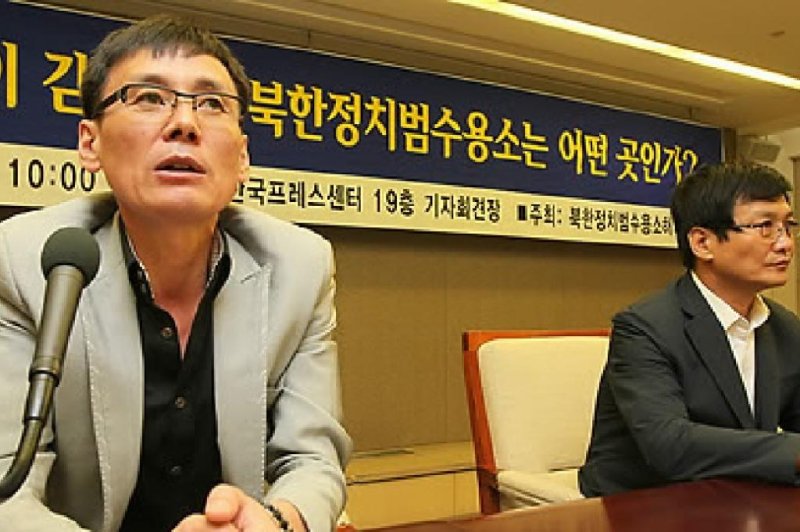Jeong Kwang-il, on left, is a former North Korean political prisoner who now works as an activist in Seoul, South Korea. File photo by Yonhap
SEOUL, June 26 (UPI) -- A defector who once piled dead bodies at a North Korean political prison camp submitted a report to the new U.N. human rights office in Seoul.
In his report on Friday Jeong Kwang-il identified 180 missing captives and urged the U.N. to launch an investigation into their whereabouts, Yonhap reported.
Yodok, the political prison camp where Jeong once served time, was dismantled last October. Voice of America reported the camp began to disappear from satellite images in 2014.
North Korea denies it operates massive prison camps for the politically insubordinate and their relatives – but Jeong and an affiliated group, the International Coalition to Stop Crimes against Humanity in North Korea, said between 80,000 and 120,000 political prisoners are still languishing in North Korea detention.
Jeong said the abysmal conditions in these prison camps led to countless deaths. Prisoners like himself who remained alive had to pile the dead bodies in a shed, then use pitchforks to drag them out in the spring.
After defecting to the South, Jeong has become a spokesman for defectors with a similar past in political prisons. He served prison time between 2000 and 2003, but now his projects include smuggling in movies and DVDs to the North.
On Friday, Jeong said the political prisons hosted anti-state activists little known to the outside world, including those charged with plotting to overthrow the Kim Jong Il regime between 1997 and 2000, and a group of North Korean students who plotted a coup in 1989, while they studied in Germany.
Jeong said he also wanted an investigation into the prison personnel who released him in 2003. In total, 400 people have gone missing since Yodok shuttered in October 2014.
Seoul's spy agency said last October Yodok may have been relocated to Kilju in North Hamkyong Province, and that punishment has escalated for those charged with political crimes inside the country.















